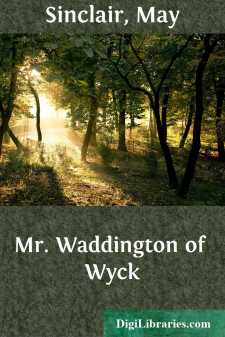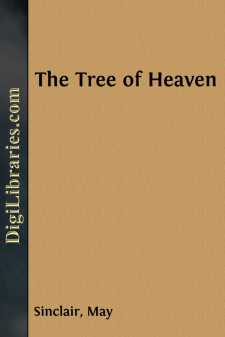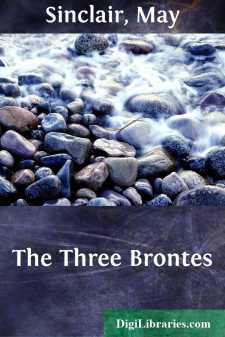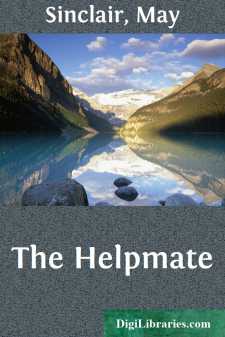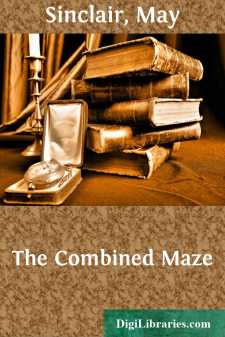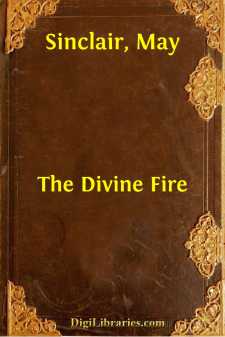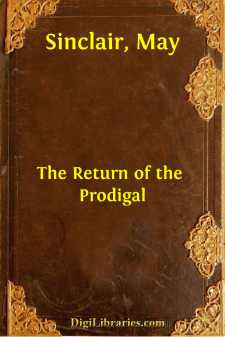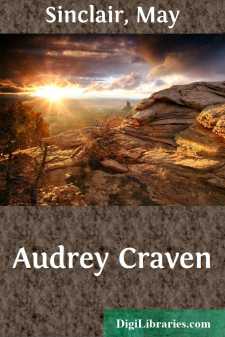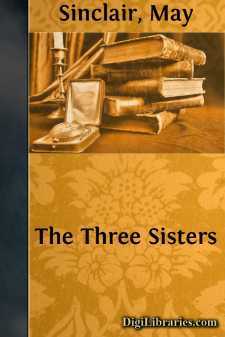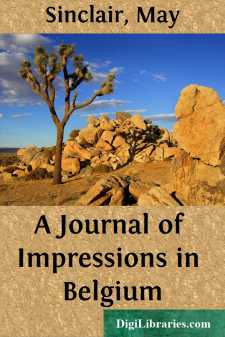Categories
- Antiques & Collectibles 13
- Architecture 36
- Art 48
- Bibles 22
- Biography & Autobiography 813
- Body, Mind & Spirit 142
- Business & Economics 28
- Children's Books 17
- Children's Fiction 14
- Computers 4
- Cooking 94
- Crafts & Hobbies 4
- Drama 346
- Education 46
- Family & Relationships 57
- Fiction 11829
- Games 19
- Gardening 17
- Health & Fitness 34
- History 1377
- House & Home 1
- Humor 147
- Juvenile Fiction 1873
- Juvenile Nonfiction 202
- Language Arts & Disciplines 88
- Law 16
- Literary Collections 686
- Literary Criticism 179
- Mathematics 13
- Medical 41
- Music 40
- Nature 179
- Non-Classifiable 1768
- Performing Arts 7
- Periodicals 1453
- Philosophy 64
- Photography 2
- Poetry 896
- Political Science 203
- Psychology 42
- Reference 154
- Religion 513
- Science 126
- Self-Help 84
- Social Science 81
- Sports & Recreation 34
- Study Aids 3
- Technology & Engineering 59
- Transportation 23
- Travel 463
- True Crime 29
Mr. Waddington of Wyck
by: May Sinclair
Description:
Excerpt
I
1
Barbara wished she would come back. For the last hour Fanny Waddington had kept on passing in and out of the room through the open door into the garden, bringing in tulips, white, pink, and red tulips, for the flowered Lowestoft bowls, hovering over them, caressing them with her delicate butterfly fingers, humming some sort of song to herself.
The song mixes itself up with the Stores list Barbara was making: "Two dozen glass towels. Twelve pounds of Spratt's puppy biscuits. One dozen gent.'s all-silk pyjamas, extra large size" … "A-hoom—hoom, a-hoom—hoom" (that Impromptu of Schubert's), and with the notes Barbara was writing: "Mrs. Waddington has pleasure in enclosing…." Fanny Waddington would always have pleasure in enclosing something…. "A ho-om—boom, hoom, hee." A sound so light that it hardly stirred the quiet of the room. If a butterfly could hum it would hum like Fanny Waddington.
Barbara Madden had not been two days at Lower Wyck Manor, and already she was at home there; she knew by heart Fanny's drawing-room with the low stretch of the Tudor windows at each end, their lattices panelled by the heavy mullions, the back one looking out on to the green garden bordered with wallflowers and tulips; the front one on to the round grass-plot and the sundial, the drive and the shrubbery beyond, down the broad walk that cut through it into the clear reaches of the park. She liked the interior, the Persian carpet faded to patches of grey and fawn and old rose, the port-wine mahogany furniture, the tables thrusting out the brass claws of their legs, the latticed cabinets and bookcases, the chintz curtains and chair-covers, all red dahlias and powder-blue parrots on a cream-coloured ground. But when Fanny wasn't there you could feel the room ache with the emptiness she left.
Barbara ached. She caught herself listening for Fanny Waddington's feet on the flagged path and the sound of her humming. As she waited she looked up at the picture over the bureau in the recess of the fireplace, the portrait in oils of Horatio Bysshe Waddington, Fanny's husband.
He was seated, heavily seated with his spread width and folded height, in one of the brown-leather chairs of his library, dressed in a tweed coat, putty-coloured riding breeches, a buff waistcoat, and a grey-blue tie. The handsome, florid face was lifted in a noble pose above the stiff white collar; you could see the full, slightly drooping lower lip under the shaggy black moustache. There was solemnity in the thick, rounded salient of the Roman nose, in the slightly bulging eyes, and in the almost imperceptible line that sagged from each nostril down the long curve of the cheeks. This figure, one great thigh crossed on the other, was extraordinarily solid against the smoky background where the clipped black hair made a watery light. His eyes were not looking at anything in particular. Horatio Bysshe Waddington seemed to be absorbed in some solemn thought.
His wife's portrait hung over the card-table in the other recess....


